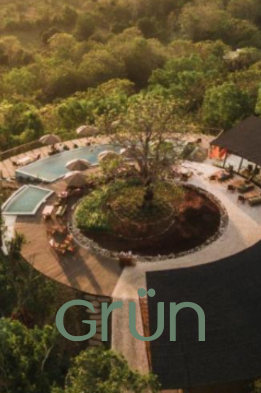What are travel wholesalers?
Travel wholesalers are B2B companies that purchase hotel room inventory in bulk at a discounted rate and sell it to OTAs, travel agents, tour operators, airlines, and other travel or accommodation sellers.
Also known as bed banks, wholesalers are a ‘middleman’ sitting between travel agents and travel suppliers (in this case your hotel). They will never sell your rooms directly to travellers.
Every wholesaler will have a unique price for operators to participate in their programs and often different wholesalers will sell in different ways. For instance, some may sell rooms only while others will deal in packages. Some are even limited to specific property types or markets.
Despite being a polarising entity within the industry, the new narrative around wholesalers could be one of opportunity for your business. Let’s take a closer look.
Table of contents
Why are hotel wholesalers important to discuss?
Hotel wholesalers can be a vital part of your hotel’s distribution strategy, when used strategically. They offer opportunities to access a more diverse and unique range of guests. An optimal hotel distribution strategy always includes a healthy mix of direct and third-party bookings, with a broad variety of potential revenue streams.
Wholesalers do bring up a lot of debate however, and have been a point of contention in the hotel industry due to the potential frustrating drawbacks for property and revenue managers. It got to the point where hoteliers were extremely cautious about engaging them.
But when COVID-19 happened, it emphasised the need for diversification and tech-led business strategies.It also accelerated the need for agility, with the motivations, behaviours, and preferences of travellers shifting indefinitely.
With diversification so high on the agenda again, wholesalers represent a door being reopened.
Diversify and boost revenue
Use SiteMinder's smart platform to easily sell inventory to your preferred wholesalers.
Learn more
Should your hotel consider using a bed bank?
For some hotels, such as large groups and chains, bed banks can be extremely useful if they have a beneficial agreement and appropriate distribution technology in place.
Current advice for hoteliers within the industry includes:
- To start considering niche demographics and guest profiles
- Double-down on improving distribution networks
- Create an online presence that expands booking potential
Alongside this, the prevailing view emerging after the pandemic is that wholesalers are adopting more responsible practices, with greater transparency and less fragmenting of purchased rates.
A market trend towards last-minute bookings also means hotels need to be more flexible in how they fill their beds, allowing bed banks like Hotelbeds to take a more granular approach to their partnerships.
This, coupled with the ability to manage negotiated rates dynamically with hotel commerce platforms like SiteMinder, makes wholesalers a very real proposition for hoteliers looking to optimise their business.
A leading travel news outlet reported that rooms sold through bed banks by hotels will surpass $50 billion going forward, now that the wholesale marketplace is being cleaned up with the help of advanced technology solutions.
Noting that the pandemic created a customer base that favours last-minute travel reservations, there’s a pressing need for hoteliers to abandon manual B2B distribution business if they want to keep up.
Coupled with this is the traveller protection that comes with booking packaged holidays, increasing bookings via traditional channels sales and making wholesalers an attractive proposition once again.

Pros and cons of hotel room wholesalers
While hotel room wholesalers are certainly a valid distribution method to consider, there are still a number of pros and cons your hotel should weigh up before proceeding.
Let’s take a look.
Pros of hotel room wholesalers
- With wholesalers selling to online travel agents and retail agents, no stone is left unturned in the mission to get your property in front of as many eyes as possible.
- Many wholesalers specialise in providing access to a wide range of markets that you could never reach directly, and working with them becomes almost a free form of marketing for your property.
- The benefit of being able to more accurately forecast occupancy patterns when you have a contract with a wholesaler, and you can be certain to always generate a specific volume of business and be paid in advance.
Cons of hotel room wholesalers
- Even if wholesalers have the best intentions, there’s not much they can do to control what OTAs or other parties do once the product has been sold on.
- By demanding low net rates (or high commissions) wholesalers drive down profitability
- Wholesaler pricing can be static for long periods of time, limiting hotel profitability
- Multiple contracts between hotel and wholesaler, and wholesaler and other distributors – results in rate disparity
- Rates expected to be packaged sometimes end up ‘unbundled’ and sold at a heavily discounted rate, undercutting the hotel.
Reach global markets through leading wholesalers
SiteMinder gives you unmatched reach to global and regional markets with real-time online distribution to wholesalers.
Learn More
List of travel wholesalers
A list of common travel wholesalers or bed banks you might see includes:
- Hotelbeds
- Bedswithease
- Bonotel
- GRNconnect
- Abreu Online
- HPro Travel (HotelsPro)
- Jumbo Tours
- Tourism Exchange
- Travco
- WebBeds
However there is no shortage of wholesalers available to hoteliers, with 100+ connected via SiteMinder’s integration alone.
Who are the largest hotel wholesalers?
HPro Travel, formerly HotelsPro, claims to work with one million hotels, making it the biggest hotel wholesaler in the market. It also boasts that these properties span across 70,000 destinations, 15,000 cities, and 205 countries.
Hotelbeds is another large bed bank, operating across 185 countries and a range of property types including hotels, resorts, boutiques, hostels, apartments, villas, B&Bs, and more.
A third ‘giant’ would be WebBeds, which is said to have almost 400,000 connected hotels in 14,000 destinations, and works closely with both independent hotels and hotel chains.
How to manage wholesale agreements at your hotel
Some best practices you can take in managing your wholesale agreements include:
- Plan, research and trial
It’s important you know what you want to achieve since each wholesaler may have different strengths or be attuned to different markets and types of guests. Once you have a plan, choose some likely partners and undertake a trial period if you can to see if a long term agreement will be worthwhile.
- Manage constantly
To avoid difficult parity violations, such as when you drastically change your rates, it’s important to treat wholesalers as true distribution partners and constantly manage the agreement.
- Analyse regularly
If you can identify when and where contract violations occur, you can better decide what changes need to be made to your agreements in the future or if you want to remain in the relationship.
- Seek similar minds
If your philosophy as a hotelier is based strongly on the hospitality side of things and serving people the best experience, you should try to find partners who have the same idea. As we know, some parties are more interested in securing sales than taking care of people, so choose carefully when entering into wholesale agreements.
- Be on the front foot
Dynamic rate agreements will go a long way to reducing disparity and give you more control. So you should narrow down your list of wholesale partners who are willing to agree to your terms. It’s vital that you can adjust rates according to supply and demand across all your distribution strategies.
If you have the resources to dedicate entirely to managing wholesale agreements, like an IHG for example, then it’s certainly beneficial to do so. If not, then seek and share as much information as possible. Hoteliers can learn a lot through lived experiences and from their peers. The industry is huge and the hotel community can usually overcome challenges through collaboration and smart partnerships.

